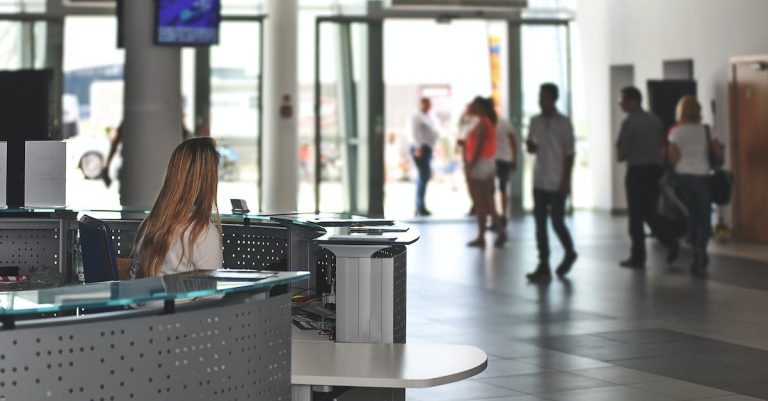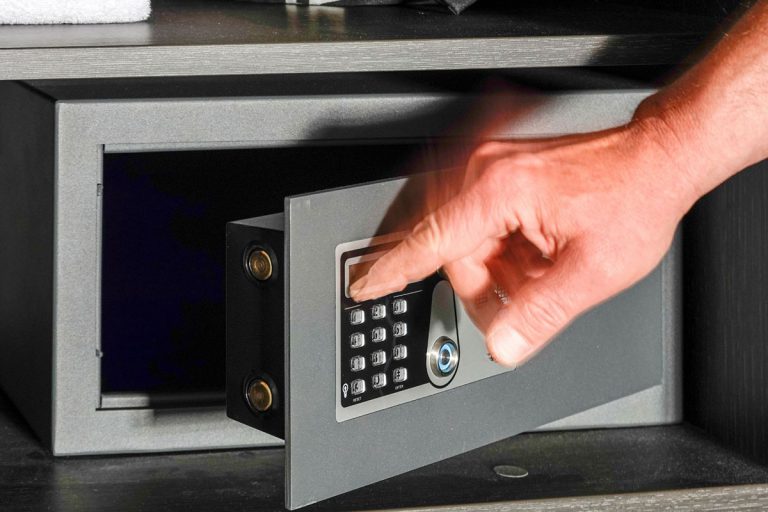Staying connected on vacation often means logging onto hotel WiFi networks. But if you use private or incognito browsing, are your online activities still visible to the hotel?
Yes, hotel Wi-Fi could see the sites you visit, even in private browsing. However, if the site uses HTTPS, they can’t see what you’re doing on the site. For more privacy, consider using a VPN to encrypt your data.
Read on to learn how it works and steps to better protect your information.
This comprehensive guide explains what private browsing is, how hotel WiFi networks operate, the extent to which they can view your private online activity, and most importantly, what you can do to browse more anonymously. With greater insight into hotel WiFi capabilities and some key tips, you can maintain your privacy when connecting on vacation.
Understanding Private Browsing
Private browsing is a feature offered by most modern web browsers that allows users to surf the internet without leaving any traces behind. It is often used to protect one’s privacy and prevent others from accessing their browsing history, cookies, and other sensitive information. While private browsing can be a useful tool, it is important to understand its limitations, especially when it comes to using hotel WiFi.
Doesn’t save browsing history
One of the key features of private browsing is that it doesn’t save the user’s browsing history. This means that once you close the private browsing window or tab, the websites you visited during that session will not appear in your browser’s history.
However, it is important to note that this only applies to the local device. Hotel WiFi networks or any other network you connect to can still log your browsing activity.
No cookies stored
Private browsing also prevents the storage of cookies on your device. Cookies are small files that websites use to track your preferences and remember your login information.
In private browsing mode, these cookies are automatically deleted when you close the browsing window. However, it’s worth noting that websites can still track your activity through other means, such as IP addresses or device fingerprints.
Links open in new tabs
When browsing in private mode, links typically open in new tabs or windows instead of the same one. This feature is designed to prevent websites from tracking your browsing history through the use of referrer headers. By opening links in new tabs, the referrer information is not passed on to the new page, providing an additional layer of privacy.
IP address still visible
While private browsing hides your browsing history and prevents the storage of cookies, it does not conceal your IP address. Your IP address is a unique identifier that is assigned to your device when you connect to the internet. Hotel WiFi networks or any other network you connect to can still see your IP address, which can be used to track your online activities.
It is worth mentioning that while private browsing can provide some level of privacy, it is not foolproof. If you truly want to protect your online privacy, consider using a virtual private network (VPN) or other privacy-enhancing tools.
How Hotel WiFi Networks Work
When you check into a hotel and connect to their WiFi network, have you ever wondered how it actually works? Let’s take a closer look at the inner workings of hotel WiFi networks.
Provided by third-party company
Most hotels do not manage their own WiFi networks. Instead, they rely on third-party companies that specialize in providing WiFi services. These companies set up and maintain the infrastructure needed to provide internet access to hotel guests.
Splash page for login
When you connect to a hotel WiFi network, you are usually redirected to a splash page where you need to enter a username and password or agree to the terms of service. This splash page serves as a gateway to the internet and helps the hotel track and manage guest access.
The splash page may also display information about the hotel’s amenities or promotions. Some hotels even use it as an opportunity to collect guest feedback or offer additional services.
Also Read: How To Force A Wifi Login Page: A Comprehensive Guide
Terms of service apply
Before you can access the internet, you are typically required to agree to the hotel’s terms of service. These terms outline the acceptable use policy and may include restrictions on bandwidth usage, prohibited activities, and liability disclaimers.
It’s important to read and understand these terms, as violating them could lead to consequences such as loss of internet access or even legal action.
Activity can be monitored
While hotel WiFi networks are convenient, it’s important to be aware that your online activity can be monitored. Hotels have the ability to track the websites you visit, the apps you use, and the data you transmit over their network.
This monitoring is typically done to ensure network security, prevent illegal activities, and enforce the hotel’s terms of service. However, it’s always a good idea to practice safe browsing habits and avoid transmitting sensitive information over public WiFi networks.
So, the next time you connect to a hotel WiFi network, remember that it is provided by a third-party company, requires a login through a splash page, has terms of service that apply, and your activity can be monitored. Stay safe and enjoy your internet access!
Extent Hotels Can See Private Data
When it comes to hotel WiFi, many travelers wonder just how much of their private browsing activity is visible to the hotel. The extent to which hotels can see private data depends on several factors, including the WiFi provider, the access granted to hotel staff, and the level of data analysis being performed. Let’s take a closer look at each of these factors to understand the potential risks associated with using hotel WiFi.
Depends on WiFi provider
The level of visibility hotels have into your private browsing data can vary depending on the WiFi provider they use. Some providers may have more stringent privacy policies in place, ensuring that customer data remains confidential.
However, it is important to note that not all providers may prioritize privacy to the same extent. Before connecting to a hotel WiFi network, it is a good idea to research the provider’s privacy practices and review their terms of service.
Hotel staff may have access
In some cases, hotel staff may have access to the data passing through their WiFi network. This access could be granted for legitimate reasons, such as troubleshooting network issues or providing technical support to guests.
While most hotels have policies in place to protect guest privacy, it is still possible for hotel staff to view private browsing activity.
It is always a good idea to be cautious when accessing sensitive information, such as online banking or personal emails, while connected to hotel WiFi.
Traffic usually isn’t analyzed
It is important to note that the majority of hotels do not actively analyze the traffic passing through their WiFi networks. Hotels are primarily concerned with providing a reliable and secure internet connection to their guests.
However, this does not guarantee that your private browsing activity is completely invisible. It is still possible for hotels to monitor network traffic if they have the necessary tools and permissions in place.
More concern for unencrypted data
While hotels may have limited visibility into your private browsing activity, there is generally more concern when it comes to unencrypted data. Unencrypted data, such as websites accessed over HTTP instead of HTTPS, can be more easily intercepted and viewed by third parties, including hotel WiFi providers.
Using VPNs for Added Privacy
When it comes to using public Wi-Fi networks, privacy and security are always a concern. Hotel Wi-Fi, in particular, can be vulnerable to hacking and surveillance. But can hotel Wi-Fi really see your private browsing? The answer is yes, unless you take the necessary precautions to protect yourself. One effective way to enhance your privacy while using hotel Wi-Fi is by using a Virtual Private Network (VPN).
Encrypts traffic
One of the main benefits of using a VPN is that it encrypts your internet traffic. This means that all the data you send and receive is scrambled, making it unreadable to anyone who might intercept it. Even if someone manages to access the hotel Wi-Fi network, they won’t be able to decipher your online activities. Your emails, messages, and browsing history will remain private and secure.
Masks IP address
A VPN also masks your IP address, which is a unique identifier that can be used to track your online activities. When you connect to a VPN server, your IP address is replaced with the server’s IP address. This makes it difficult for anyone to trace your online activities back to your actual location. So even if the hotel Wi-Fi network is monitoring your internet traffic, they won’t be able to link it to your device or identity.
Blocks location tracking
In addition to masking your IP address, a VPN can also block location tracking. Websites and apps often use your IP address to determine your approximate location. By using a VPN, you can bypass this tracking and browse the internet with more anonymity. Whether you’re accessing local news or booking a flight, you can browse without revealing your true location to the hotel Wi-Fi network.
Paid VPNs are more secure
While there are free VPN services available, it’s important to note that paid VPNs offer better security and privacy features. Free VPNs may have limitations such as slower connection speeds, limited server options, or even selling your data to third parties. On the other hand, paid VPNs often provide stronger encryption protocols, a wider range of server locations, and a strict no-logs policy. Investing in a reputable VPN service is worth considering for maximum privacy and security.
Remember, using a VPN is not only beneficial for protecting your privacy on hotel Wi-Fi networks but also on any public Wi-Fi network you connect to. So, the next time you travel and need to use hotel Wi-Fi, make sure to use a VPN for added privacy and peace of mind.
Other Ways to Improve Privacy
Use HTTPS websites
When browsing the internet, it’s important to ensure that the websites you visit are secure. One way to do this is by using websites that have HTTPS in their URLs. The “S” stands for secure, and it means that the connection between your device and the website is encrypted, making it more difficult for hackers or anyone else to intercept your data. Many popular websites, such as Google and Facebook, already use HTTPS by default. However, it’s always a good idea to double-check the URL to ensure your safety.
Turn off WiFi when not in use
Another way to improve your privacy is by turning off your WiFi when you’re not using it. This prevents your device from automatically connecting to unsecured networks, such as those in coffee shops or airports, where your data could be vulnerable to hackers. By disabling WiFi when you’re not actively using it, you minimize the risk of unauthorized access to your device or personal information.
Don’t do banking or shopping on public WiFi
While it may be tempting to do some online banking or shopping while connected to a hotel’s WiFi, it’s generally not a good idea. Public WiFi networks are often less secure than private ones, making it easier for hackers to intercept your sensitive information. Instead, wait until you’re on a secure and trusted network, such as your home WiFi or a personal hotspot, before conducting any financial transactions or entering personal details.
Use device firewalls and anti-virus software
Protecting your devices with firewalls and anti-virus software can also enhance your privacy. Firewalls act as a barrier between your device and the internet, monitoring and controlling incoming and outgoing network traffic. Anti-virus software, on the other hand, scans for and removes malicious software that could compromise your privacy. By regularly updating and running these security measures, you can minimize the risk of unauthorized access or data breaches.
By following these additional tips, you can further enhance your privacy and protect your personal information while using hotel WiFi or any public network.
Conclusion
In summary, hotel WiFi networks have the capability to see some private browsing data, but aren’t necessarily monitoring closely. For greater anonymity, use secure VPN connections, avoid transmitting personal info, and limit WiFi usage. With some prudent steps, you can still safely use hotel internet while maintaining your privacy.
Hotel WiFi opens up useful access on the road, but should be used cautiously if you want to keep your activity private. Take reasonable precautions and your personal information will remain secure as you enjoy the convenience of staying connected.






